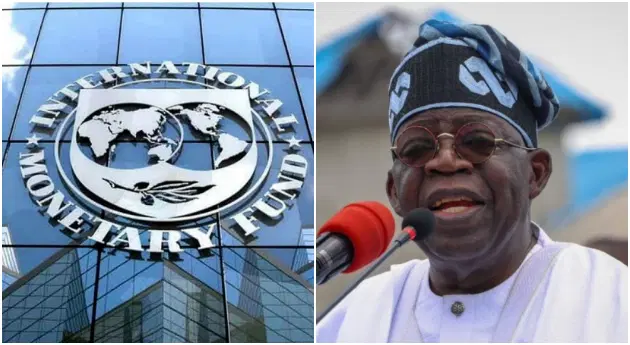The Independent Media and Policy Initiative (IMPI) has strongly criticised the International Monetary Fund’s (IMF) recent economic forecast for Nigeria, calling it an “abuse of data aggregation and interpretation.” In a statement signed by the Chairman, Dr. Omoniyi M. Akinsiju, the group pointed out the significant differences between the IMF’s outlook and what it perceives as the current state of the Nigerian economy. According to IMPI, local data and ongoing government reforms support a more optimistic view.
The IMF’s World Economic Outlook Report predicted a sharp rise in Nigeria’s inflation rate, reaching 37% in 2026, up from 26.5% in 2025. The IMF attributed this increase to loose financial conditions, high international food prices, and a widening parallel market premium. In contrast, the World Bank projected a decrease in inflation, predicting it would fall to 22.1% in 2025 and further moderate to 15.9% by 2027.
IMPI’s research suggests a different inflation trajectory, with headline inflation dropping from 34.8% in December 2024 to 24.48% in January 2025, before slightly rising to 24.23% by March 2025. Regarding economic growth, the IMF downgraded its 2025 forecast for Nigeria to 3.0% and 2.7% for 2026, citing lower global oil prices as a significant risk. However, IMPI questioned this reasoning, especially as Nigeria diversifies from oil reliance. The World Bank’s forecast was more optimistic, predicting 3.6% growth in 2025 and 3.8% by 2027, citing continued government reforms.
The IMPI agreed with Nigerian analysts and policymakers, who also disputed the IMF’s projections. The group highlighted several positive domestic indicators, including the Central Bank of Nigeria’s effective management of monetary expansion, efforts to address supply-side constraints, and exchange rate stabilization. Additionally, improvements in security in food-producing regions, tax exemptions on food imports, and growing fiscal discipline were noted as key factors not fully reflected in the IMF’s forecast.
The IMPI also pointed to the recent economic expansion reported by the Central Bank, with the Purchasing Managers’ Index (PMI) rising to 52.3% in March 2025. Moreover, companies listed on the Nigerian Stock Exchange that experienced losses due to naira devaluation in the first quarter of 2024 have seen significant recoveries, thanks to the naira’s appreciation and stability. Major companies such as MTN Nigeria, Nestlé Nigeria, and Dangote Cement reported strong turnarounds in profitability.
In addition, Nigeria’s non-oil exports surged to $1.791 billion in the first quarter of 2025, a 24.75% increase year-on-year, with export volume jumping by 243.44%. This follows a record $5.456 billion in non-oil exports in 2024.
The IMPI concluded that the federal government’s ongoing reforms would significantly benefit the population, potentially reducing poverty and food insecurity. It echoed the Finance Minister’s commitment to achieving a 7% GDP growth rate, which is seen as crucial for poverty reduction and the growth of a thriving middle class.

